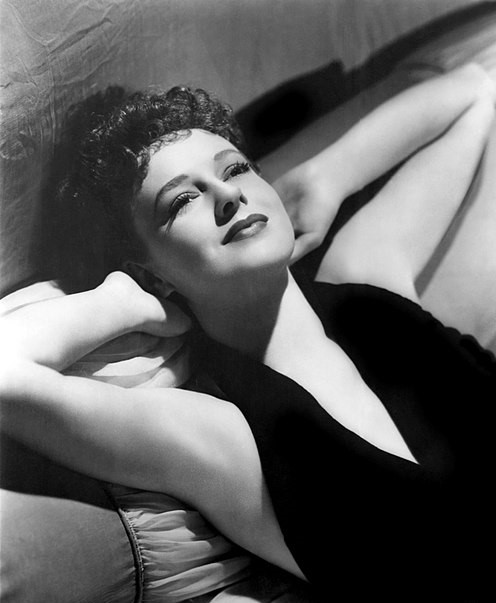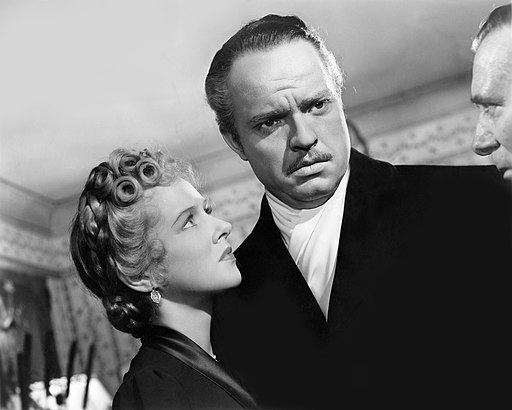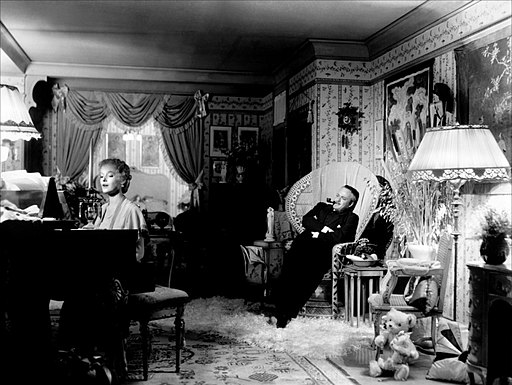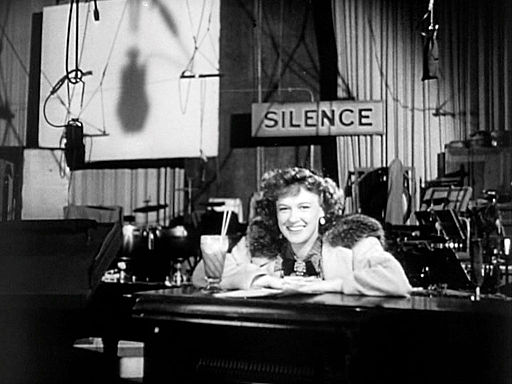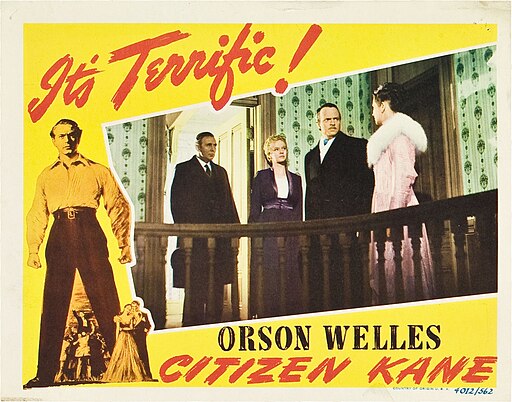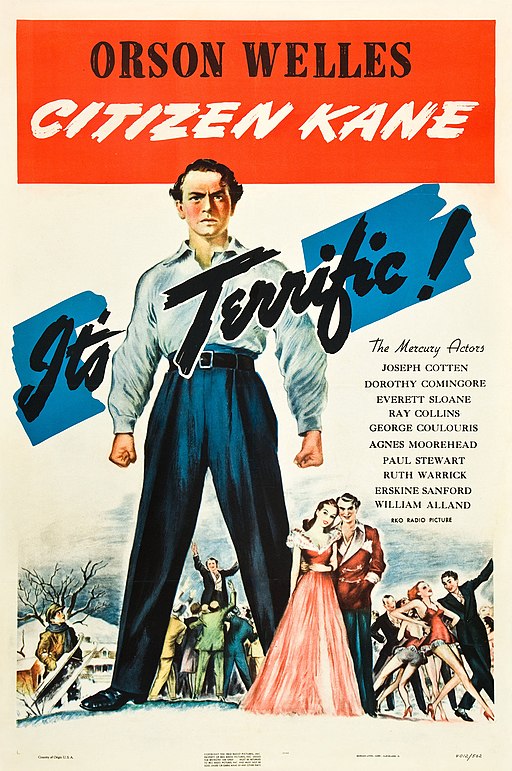Dorothy Comingore
back| Full Name | Margaret Louise Comingore |
| Stage Name | Dorothy Comingore |
| Born | August 24, 1913 |
| Birthplace | Los Angeles, California, USA |
| Died | December 30, 1971 |
| Buried | Ashes given to the family |
| Married to | Richard J. Collins (1945-1954) - John Crowe (from 1954 until her death in 1971) |
| Children | Holly Ann Collins, Catherine Collins, and Christopher Crowe |
| Notable films | Citizen Kane (1941) - The Hairy Ape (1944) - Any Number Can Play (1949) |
Dorothy Comingore
A Career and Life Broken by McCarthyism
Comingore's career was significantly impacted by the Hollywood blacklist during the McCarthy era. Accused of being a communist, she was blacklisted, which severely limited her opportunities in the film industry. Her life post-Hollywood was marked by personal struggles, including a battle with alcoholism and a tough legal fight for custody of her children.
Despite these challenges, Comingore's performance in "Citizen Kane" remains a highlight of her career and a significant part of film history. Her portrayal of Susan Alexander Kane, the second wife of the titular character, received critical acclaim and has been remembered as one of the pivotal performances in early American cinema.
Related
Dorothy Comingore (1913 – 1971)
Biography and Analysis of her Movie Career
Dorothy Comingore was born as Margaret Louise Comingore on August 24, 1913, in Los Angeles, California. From a young age, she showed an interest in performing arts. Growing up in the heart of the film industry's birthplace, she was naturally drawn to the silver screen. However, her journey to stardom wasn't straightforward. Little is widely known about her early life, as she maintained a level of privacy about her upbringing and family.
Career and Path to Success
Dorothy's path to success in Hollywood was marked by both talent and serendipity. She started her career in the late 1930s under the name Linda Winters, gaining minor roles in films. Her big break came with the critically acclaimed film "Citizen Kane" (1941), where she played Susan Alexander Kane. Directed by Orson Welles, this film is often hailed as one of the greatest movies ever made, and Dorothy's performance was a standout, marking the peak of her career.
Personal Life and Passions
Comingore's personal life was as complex and dramatic as some of the roles she played. She married twice; first to writer Richard J. Collins in 1945. This marriage, however, ended in 1954 amidst the turbulent era of McCarthyism. Her second marriage was to John Crowe in 1954, with whom she remained until her death. She was a mother to three children: Holly Ann, Catherine, and Christopher.
Her passions extended beyond acting. She was known for her strong political views, which eventually led to her downfall in Hollywood. Dorothy was a vocal advocate for her beliefs, which during the era of McCarthyism, was a risky stance to take.
Hollywood Blacklist and Professional Decline
Her career took a downturn when she was accused of being a communist sympathizer during the Red Scare in the United States. Her alleged political affiliations led to her being blacklisted in Hollywood, a devastating blow to her career and personal life. This blacklisting marked the end of her career in the film industry, and she struggled to find work afterward.
Later Life and Death
The later years of Dorothy Comingore's life were marked by personal struggles. She battled with alcoholism and faced legal challenges, including a custody battle for her children. Her life after Hollywood was significantly more private and less documented than her years in the spotlight.
Dorothy Comingore passed away on December 30, 1971. The cause of her death was a pulmonary disease, specifically a bronchopneumonia. Her death marked the end of a life that had seen the highest highs of Hollywood fame and the lowest lows of personal and professional struggle.
Legacy
Despite the challenges she faced, Dorothy Comingore's legacy in the film industry, particularly her role in "Citizen Kane," remains a testament to her talent. Her performance in the film is still celebrated for its depth and complexity, contributing significantly to the movie's enduring reputation.
A Short Biography of Dorothy Comingore:
Analysis of her Acting Style:
Dorothy Comingore's acting style, particularly notable in her most famous role in "Citizen Kane," was marked by a naturalistic and emotionally resonant approach, which was somewhat ahead of its time in the era of Hollywood's Golden Age.
Emotional Depth and Nuance
Comingore had a remarkable ability to convey deep emotional states with subtlety and nuance. In "Citizen Kane," for instance, her portrayal of Susan Alexander Kane was a study in the complexities of a character caught in the web of ambition, disillusionment, and vulnerability. She didn't just act out emotions; she seemed to inhabit them, giving her characters a lived-in, authentic feel that resonated with audiences.
Versatility and Adaptability
Although Comingore's filmography was not extensive, she showed a wide range in her roles, from the troubled Susan Alexander Kane to the more straightforward parts in her earlier career. Her adaptability to different genres and characters hinted at a versatile talent, capable of handling both dramatic and lighter roles with equal conviction.
Naturalism in Performance
At a time when many Hollywood performances were characterized by a certain theatricality, Comingore's style was notably more naturalistic. She delivered lines in a way that felt conversational and real, avoiding the melodramatic intonations that were common in films of that era. This approach made her performances feel modern and is part of why they still hold up today.
Physicality and Expression
Her physical presence on screen was also a key aspect of her performances. Comingore could express a wealth of emotion through her facial expressions and body language alone. In "Citizen Kane," her facial expressions conveyed the entire arc of Susan Alexander's journey from a young, hopeful singer to a disillusioned woman.
Influence of the Studio System
It's important to consider that Comingore's acting style was also shaped by the studio system of Hollywood at the time, which often typecast actors and controlled their career trajectories. Despite these constraints, she brought a distinctive presence to her roles that set her apart from many of her contemporaries.
Awards and Recognition:
Dorothy Comingore, despite her significant talent and memorable performance in "Citizen Kane," did not receive major awards or nominations for her acting during her career. This lack of recognition can be partly attributed to the era in which she worked and the nature of her career, which was unfortunately cut short due to the Hollywood blacklist.
During the early 20th century, the film industry and its award systems were quite different from today. The Academy Awards, for instance, were still in their infancy, having started in 1929, and the categories and processes for nominations and awards were not as expansive as they are today.
Additionally, Comingore's most notable work in "Citizen Kane" occurred at a time when Orson Welles and the film itself faced significant pushback from powerful figures in the industry, most notably William Randolph Hearst, on whom the character of Charles Foster Kane was partly based. This controversy likely impacted the film's reception and its recognition at major award ceremonies.
It's also worth noting that the Hollywood blacklist, which targeted Comingore among many others during the McCarthy era for alleged communist sympathies, severely damaged her career. This not only limited her opportunities in Hollywood but also likely affected her chances of receiving accolades for her work.
A Career Broken by McCarthysim:
Dorothy Comingore's blacklisting during the McCarthy era is a notable and unfortunate chapter in her life and career, reflective of the broader political and cultural climate in the United States during that time.
Background of the McCarthy Era
The late 1940s and 1950s in the United States were marked by a heightened fear of communism, known as the Red Scare. Spearheaded by Senator Joseph McCarthy, this period saw aggressive investigations and accusations aimed at rooting out supposed communist sympathizers, particularly in the entertainment industry. The House Un-American Activities Committee (HUAC) played a key role in these investigations.
Comingore's Blacklisting
Dorothy Comingore's blacklisting stemmed from this nationwide paranoia over communist infiltration. In her case, the exact details leading to her blacklisting are less clear than with some other Hollywood figures, but it is known that she was accused of having communist affiliations.
Impact on Her Career
The blacklisting had a profound and immediate impact on Comingore's career. After her standout performance in "Citizen Kane," she should have been poised for a successful career in Hollywood. However, once blacklisted, she found herself shunned by the industry. Studios and producers, fearful of being associated with anyone labeled a communist, refused to hire those who were blacklisted. This effectively ended Comingore's career in film.
Personal Life and Struggles
The blacklisting not only impacted Comingore's professional life but also had severe personal repercussions. It led to significant stress and contributed to the decline of her personal well-being. Comingore faced scrutiny and public condemnation, common experiences for those blacklisted during this era, which often led to personal and financial difficulties.
The Hollywood Ten and Broader Context
While Comingore was not part of the Hollywood Ten — a group of screenwriters and directors who famously refused to testify to HUAC — her experience was symptomatic of the broader crackdown on Hollywood. Many talented artists saw their careers abruptly halted or severely damaged due to accusations of communist ties, often based on tenuous or non-existent evidence.
Legacy and Reflection
In retrospect, the blacklisting of Dorothy Comingore and others is viewed as a regrettable episode in American history. It's seen as an overreach of political power into the arts and a violation of civil liberties. Comingore's story, along with that of many others, stands as a stark reminder of the impact of political hysteria on individual lives and careers.
Famous Lines by Dorothy Comingore from Citizen Kane:
- "You can't do this to me, I'm an American."
This line poignantly expresses Susan's feeling of helplessness and entrapment in her relationship with Charles Foster Kane, reflecting a broader theme of individual freedom versus control.
- "Love! You don't love anybody! Me or anybody else! You want to be loved - that's all you want!"
This emotionally charged accusation towards Charles Foster Kane reveals the core issue in their relationship, highlighting Susan's realization of Kane's deep-seated emotional needs and deficiencies.
- "I don't propose to have myself made ridiculous."
Susan says this line when she resists Kane's attempts to control her career as an opera singer. It showcases her desire to maintain dignity and autonomy, despite Kane's overwhelming influence.
- "It's like everything else in this world. You've got to fight for it."
This quote, while reflecting on the struggles in her life, also mirrors the broader struggles faced by many characters in the film, as well as the human condition in general.
- "I can't sing, I can't do anything."
This line is a moment of vulnerability for Susan, expressing her self-doubt and despair, exacerbated by the pressure and expectations placed upon her by Kane.
Movies featuring Dorothy Comingore:
1938
- "Prison Break" (as Linda Winters): This film is about a man who is wrongly accused of murder and sent to prison. He manages to escape with the help of his girlfriend and seeks to prove his innocence.
1939
- "The Lone Wolf Spy Hunt" (as Linda Winters): In this film, a gentleman thief-turned-detective, the Lone Wolf, is falsely implicated in the theft of secret government plans. He must clear his name while also thwarting the real spies.
1940
- "Charlie Chan in Panama" (as Linda Winters): This installment in the Charlie Chan series has the detective in Panama during World War II, working undercover to thwart a plot to blow up the Panama Canal.
- "Girls Under 21" (as Linda Winters): This drama focuses on the lives of young women who find themselves in trouble with the law, exploring themes of redemption and societal challenges facing young women.
1941
- "Citizen Kane": Perhaps her most famous role, Comingore plays Susan Alexander Kane, the second wife of the titular character Charles Foster Kane, in this film widely considered one of the greatest movies of all time. The film explores the life and legacy of Kane, a character partly based on the real-life media mogul William Randolph Hearst.
1944
- "The Hairy Ape": Based on the play by Eugene O'Neill, this film tells the story of a brutish, but kind-hearted, stoker on a transatlantic ocean liner who seeks to better himself and win the love of a wealthy woman.
1948
- "Any Number Can Play": In this drama, Comingore plays the role of a casino owner's wife. The story revolves around the casino owner, who battles with his gambling addiction and strained family relationships.
1951
- "The Big Night": This film marks her last appearance in a major motion picture. It's a story of a young man seeking to avenge the brutal beating of his father by a nightclub owner.

